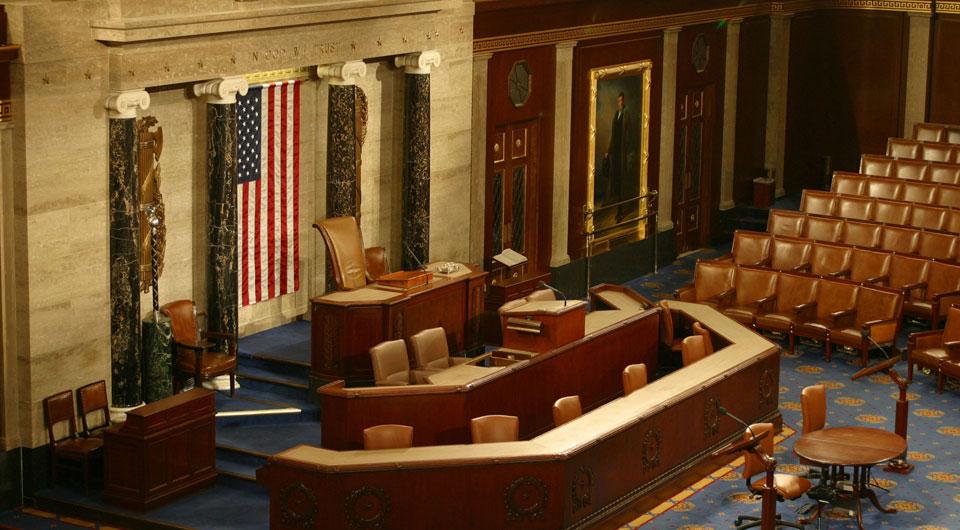By far the most confounding and surprising episode in recent American politics has come to a close: Congressman – now former – George Santos (R-Queens) was expelled from the House of Representatives in a historic vote last Friday.

Santos now joins only five other members of Congress to be expelled in history. Three were expelled in 1861 for supporting the Confederacy, one in 1980 for a bribery scandal, and one in 2002 for bribery, racketeering, and corruption charges.
Santos is the first and only Republican to have ever been expelled from the House and the first to be expelled without a formal criminal conviction.
The series of findings that led to his excommunication plagued him for his entire half-term in the House, with the initial New York Times report last December finding that Santos embellished his education history.
Santos is determined to have lied about attending Baruch College in New York and obtaining an MBA from New York University – he appears to have no college education whatsoever. He also lied about his employment with CitiGroup and Goldman Sachs – neither company could corroborate his time with them.
Santos also prided himself on his apparent Jewish heritage, which he later recanted by stating that he is Catholic with Jewish descent, making him, in a term that he coined, “Jew-ish.” He also claims that his mother was a collateral casualty of the September 11 attacks in New York, although her 2003 visa application shows she had not been in the United States since 1999.
Santos also claimed that his company “lost” four employees in the 2016 Pulse nightclub shooting in Orlando, a claim that could also not be verified by several outlets.
In addition to the profile of a pathological liar Santos has developed, Congress, namely the House Ethics Committee, has mostly been concerned with his campaign finance disclosures. In addition to overstating his net worth, which he claimed was somewhere between $2.5 million and $11 million, he has also been known for frequently trying to skirt campaign finance laws, according to a consultant who met him during his 2020 campaign.
In complaints to the Department of justice and the Federal Election Commission, the Campaign Legal Center, a non-partisan watchdog that supports enforcement of campaign finance laws, alleged that Santos concealed the sources of his funding for his 2022 campaign, falsified reports on spending, and illegally used campaign funds for personal expenses.
The finance claims led law enforcement authorities in Brazil to reopen an investigation into Santos for alleged use of a stolen checkbook in 2008. The trail ran cold for Brazilian authorities as they were unable to locate Santos. He has since admitted his guilt of check fraud in Brazil.
Nassau County District Attorney Anne Donnelly (R) announced an additional investigation into Santos’ alleged campaign finance violations.
In March, the House Ethics Committee, on which Congressman Andrew Garbarino (R-Bayport) sits, voted to investigate Santos over the allegations of “unlawful activity” during his 2022 campaign. The evenly-split bipartisan Committee voted unanimously to form a subcommittee to investigate those allegations, as well as those of Santos violating federal conflict of interest laws and sexual misconduct.
In May, federal prosecutors filed thirteen charges against Santos, including wire fraud, money laundering, theft of public funds, and lying to the U.S. House. He was arraigned at the Eastern District Courthouse in Central Islip. A vote to expel him from the House failed to pass.
As of October, Santos now faces twenty-three counts, now accusing him of stealing identities of campaign donors and using their credit cards for personal expenditures.
The House attempted to expel again, which failed in a vote of 179-213, as many Republicans deferred to the Ethics Committee.
Last month, the House Ethics Committee released their report saying that there is “substantial evidence that Representative Santos violated federal criminal laws.” The report includes over 170,000 pages of documents, financial statements, and witness testimonies. It also alleges that Santos deceived donors regarding his campaign finances and stole from his own campaign.
Two staffers have since pleaded guilty to separate charges as they related to their work on the campaign. Santos then announced that he would not seek re-election to the House in 2024, after filing paperwork in the spring.
Last week, in a 311-114, the House voted to expel Santos from the chamber. Santos was seen watching the votes being tallied, and upon realizing he would not have the support to retain his seat, he shook hands with several colleagues and left the chamber before the vote was finished.
All top GOP leaders in the House, including Speaker Mike Johsnon (R-LA-04), voted to keep Santos in Congress. The motion was backed by 105 Republicans, and 206 Democrats, with 112 Republicans and 2 Democrats against. Two Democrats voted “present,” while five Republicans and three Democrats did not vote.
Congressman Nick LaLota (R) of the First District and Congressman Anthony D’Espoisto (R-Island Park) voiced their early support for Santos’ removal and voted to expel him each opportunity they were given. Garbarino was reticent on the issue due to his membership of the subcommittee investigating Santos.
“With the expulsion of George Santos, Nassau and Queens County residents are one giant step closer to having real representation in the House of Representatives,” said LaLota in a statement. “Today, my colleagues and I set a strong precedent: A Member who lies about everything about themselves to get elected will be expelled so voters can have a chance at a proper election. With George Santos in Washington’s rear-view mirror, it’s time to focus on policy issues like the border and our nation’s debt.”
In a separate statement, D’Esposito said: “The expulsion of George Santos has removed a stain from this institution and will allow the residents of New York’s Third Congressional District the opportunity to select a representative who is not engrossed in scandals. I will continue to fight for Long Islanders in Congress and work diligently to ensure a true conservative succeeds Santos.”
The Debate
Some debate has swirled around the issue of removing Santos from Congress ahead of a formal criminal conviction, with some arguing that a new precedent has been set. Congressman Byron Donalds (R-FL-19) argues that “everybody is afforded due process under a law, and not due process under the Ethics Committee.” Donalds has said he finds no fault with the committee.
Others, however, including LaLota, believe that a new precedent would have been set by allowing Santos to remain in office, in that a pathological liar can continue to represent constituents who elected him or her under different pretenses while litigation plays out. Such litigation could have continued until the 2024 elections.
The Political Calculus for Long Island
The 2022 midterm elections marked a historic year for the New York GOP, as the party managed to sweep all of Long Island’s Congressional districts for the first time since the 1990s. As Congressman Andrew Garbarino retained his Second District seat, Nick LaLota succeeded Congressman Lee Zeldin (R-Shirley) in the First District. The two open western Long Island seats were filled by George Santos in the Third District and Anthony D’Esposito in the Fourth District.
Santos was part of the red wave that flipped the Third District for the Republican Party that year. The district initially stretched from northern Queens to Kings Park, but was redrawn to include just northern Queens and Nassau County. During the redistricting process, the state legislature proposed a lopsided map that gerrymandered the Third District to include parts of Bronx and Westchester counties. The state Supreme Court struck down the map and a more competitive, fairly-drawn map was adopted.
Uncertainty continues to swirl around the congressional maps in New York as Democrats are attempting to take another stab at redistricting, asserting that the special master’s map was only temporary for the 2022 cycle. If Democrats do redraw the map to be favorable to the party, and if it’s upheld by the state Supreme Court, the new lines could significantly alter the political calculus for the GOP going into 2024.
What makes 2024 markedly different from 2022 is the expected down ballot energy from the presidential race, in which the Democratic nominee is nearly certain to carry New York by a substantial margin.
The Special Election
Governor Kathy Hochul (D) has set the special election date for February 13, 2024. Voters will not select nominees in a primary, rather the respective parties will select their candidates.
Former Congressman Tom Suozzi (D-Glen Cove), who represented the Third District, has already declared his candidacy for the seat’s 2024 election. Suozzi vacated the seat in 2022 to run for governor, in which he was defeated in the Democratic Primary by Governor Hochul. The calculus is somewhat complicated, as Hochul and Suozzi’s relationship appears strained after his challenging her for the Democratic gubernatorial nomination last year.
Suozzi is largely seen as the best candidate Democrats could select, although former Senator Anna Kaplan (D-Port Washington) is also a declared candidate for the 2024 election. Kaplan was defeated for re-election in 2022 by Jack Martins (R-Great Neck) in the Seventh District.
In this realm, Hochul might have to tolerate Suozzi and possibly aid a relatively newfound enemy to victory as Republicans hope a special election is their best bet at retaining newly-red turf in Nassau County. The expulsion vote is also seen as a strategic move to not only improve the party’s chances of retaining the seat – as their chances with a newcomer would be slimmer in a presidential year – but also to gain incumbency over the next year ahead of what might be a gerrymandered map benefitting the Democrats.
 Digital Newspapers
Digital Newspapers Election Coverage
Election Coverage







